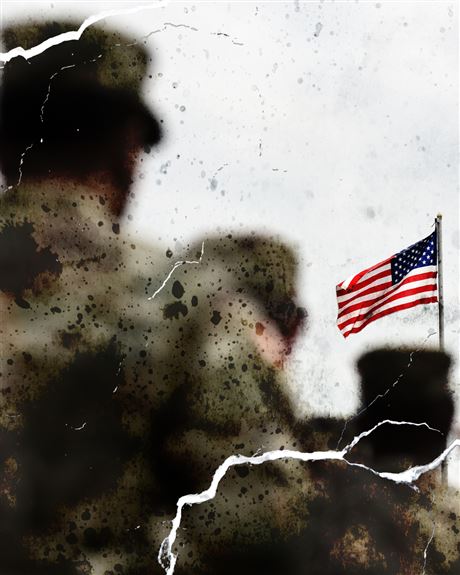For a long time, I have thought that the late writer and historian Barbara Tuchman had the all-time greatest book title.
It was for a late work of hers, published in 1984, and the title was The March of Folly. The book initially got a lukewarm, even negative reception. Ms. Tuchman, and the kind of history she wrote — for generalists and citizens, not for academics — was somewhat out of fashion by then. She was dismissed by some as a mere journalist, though one who operated on a very high level.
And that categorization did not seem to bother her in the least. She took on big subjects and big questions. And she could write.
Barbara Tuchman was what we used to call a “public intellectual.”
In fact, running for president in 1968, Sen. Eugene J. McCarthy said he would put Ms. Tuchman (and sociologist David Reisman, who wrote The Lonely Crowd) on the Supreme Court, though neither was a lawyer.
The March of Folly, Ms. Tuchman explained, was about “one of the most compelling paradoxes of history: the pursuit by governments of policies contrary to their own interests.”
Think about that phenomena, its craziness, and its staying power. Ms. Tuchman could have kept adding chapters forever.
Put another way, the book is about the inability of governments to see their own errors of judgment and correct them, even when “staying the course” has a devastating effect on the citizens.
The book consists of four case studies. Ms. Tuchman asks:
- Why did the Trojans move the Greek horse into their city?
- How did the Roman Catholic Church not see the Reformation coming?
- How did King George III not see that the American colonies wanted and deserved freedom and respect and would rebel if he did not give them both?
- And how did the wrong, even suicidal, judgments based on bad assumptions and cooked facts just keep on coming during the Vietnam War?
Most of the book is about Vietnam — a war based upon dubious assumptions about communism, about Southeast Asia, about American power, with constantly changing goals and rationales, and ever changing strategies and tactics.
You could say it was a war based on arrogant ignorance. Arrogance is always as dangerous as it is unattractive. Ignorance is more dangerous still. Put them together and you have the Molotov cocktail of pride and folly.
The United States repeated the pattern of error when we went to war with Iraq after 9/11. One assumption: This will be easy and we don’t need to understand the country or its history to defeat it.
Trust us, fellow Americans, we know what we are doing. We trusted our government. It got the wrong country and took 20 years to lose the war.
Trust us, Iraq, we are freeing you for democracy.
And we now know that the war in Afghanistan followed the same pattern of folly, sustained by one government lie after another about how we were doing. The lies were bipartisan.
It has been 18 years since we started the endless wars in Afghanistan and Iraq. With the escalation of hostilities with Iran, we have the possibility of an endless war even longer than Vietnam — our own Thirty Years’ War.
And, as with Vietnam, Iraq, and Afghanistan, no one in the government can explain how this nation’s interests are advanced by acts of war or full-out war. The President says he ordered the killing of an Iranian general to prevent a war. I’d like to hear that logic spooled out. How exactly? Go to Congress. Make the case. Ask for a declaration of war.
One senator reportedly said of Gen. Qassem Soleimani: “He was an evil bastard, and we killed him.”
Well, there are many evil bastards in the world. Presumably Soleimani was replaced by another one. Are we going to kill them all?
So Donald Trump, who ran for president promising to put America first and end endless wars and nation building, except at home, has been talked into the thing neocon hawks have wanted for two decades — provoking the Iranian regime.
But I am hard-pressed to see how this gets the regime to the table or makes Americans safer.
I think we had to defend our people in the embassy in Baghdad. But we had done that. This was back to the old crusade.
We have been trying to “fix” Iraq for 20 years and Iran since we overthrew the democratically elected government there in 1953. Each step along the way was another step in the march of folly. We never figured out what our aim was or how we might achieve it. We have not figured it out with respect to Iran now. The failure of our meddling has somehow not made us humble or careful.
And no one can tell me, from the time of John Foster Dulles’ hypermoralism to the time of John Bolton’s hyperintervention, why even a single American soldier should die for the future of Iraq or Iran.
Folly marches on. The globalism that emptied out the American heartland and destroyed small-town America is still the ideology of the political establishment. They call it free trade. It is really a redistribution of capital and work overseas.
The obsession with Russia — parallel to the old communist obsession — has gripped the left instead of the right, and much of the media.
So we have a new Cross of Gold and a new Other (just like the old Other), and a new war with no purpose and no end. Ignorance and arrogance have kissed once again and brought forth new slogans, cliches, and ideologies.
Sen. Rand Paul says we never seem to figure out unintended consequences in American foreign and military policy. That’s a good summary of our folly.
Barbara Tuchman said this: “War is the unfolding of miscalculations.”
I hope we can avoid a war, even now. The soldiers who die and are maimed will be from the heartland, from Appalachia — the “deplorables” who built the country. But I fear the rapid unfolding of miscalculation.













